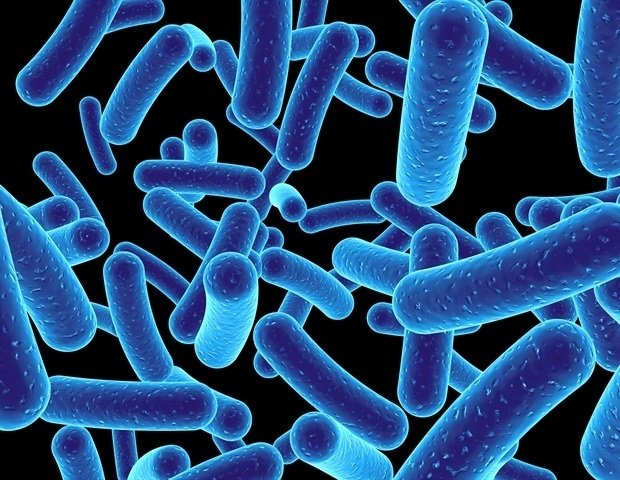Our intestines host trillions of bacteria and research in recent decades has established how necessary for our physiology – in health and diseases. A new study by EMBL Heidelberg researchers shows that bowel bacteria can cause deep molecular changes to one of our most critical organs – the brain.
The new study, published in the journal Nature structural and molecular biology, It is the first to show that bacteria living in the intestine can affect the way the proteins in the brain are modified by carbohydrates – a process called glycosylation. The study was made with a new method developed by scientists – DQGLYCO – that allows them to study glycosylation on a much higher scale and analysis than previous studies.
A new way of measuring glycosylation
Proteins are the work of our cells and their main structural elements. Sugar or carbohydrates, on the other hand, are among the main energy sources of the body. However, the cell also uses sugars to modify chemical proteins by changing their functions. This is called glycosylation.
“Glucosylation can affect the way cells are associated with each other (attachment), how they move (mobility) and even how they talk to each other (communication),” explained Clément Potel, the first author of the study and her scientist Savitski group. “Participates in the pathogenesis of many diseases, including cancer and neuronal disorders.”
However, glycosylation was traditionally difficult to study. Only a small part of protein in the cell is glycosylated and gathering many of them in a sample for a study (a process called “enrichment”) tends to be painful, expensive and time consuming.
So far, such studies have not been done on a systematic scale, quantitatively and with high reproducibility. These are the challenges we have managed to overcome with the new method. ”
Mikhail Savitski, team leader, senior scientist and leader of Core Proteomics unit in EMBL Heidelberg
DQGLYCO uses low -cost laboratory materials, such as functional silica pellets, to selectively enrich glycosylated proteins from organic specimens, which can then be recognized and measured accurately. By applying the method to mice brain samples, the researchers could detect more than 150,000 glycosylated forms of protein (“protects”), an increase of more than 25 times compared to previous studies.
The quantitative nature of the new method means that researchers can compare and measure the differences between samples from different tissues, cell lines, species, etc. This also allows them to study the model of “microterogenesia” – the phenomenon where the same part A protein can be modified by many (sometimes hundreds) different sugar groups.
One of the most common examples of micro -resource is the groups of human blood, where the presence of different groups of sugar in proteins in red blood cells determines the type of blood (A, B, O and AB). This plays an important role in the decision to success in the success of blood transfusions from one person to another.
The new method has allowed the group to identify such a microterogenic in hundreds of protein positions. “I think the broader prevalence of microtangesia is something that people have always been assumed, but that had never been clearly proven, since you have to have enough glucose -protein coverage so you can make the statement,” said Mira Burtscher, another Author of The The Study and student of Ph.D. Savitski.
From the gut to the brain
Given the accuracy and power of the method, the researchers decided to use it to address an excellent biological question. In collaboration with Michael Zimmermann’s team on EMBL, they then examined whether the gut germalide had any effect on glycosylation signatures they had observed on the brain. Both Zimmermann and Savitski are part of the transverse theme of microbial ecosystems in EMBL, which was introduced by the EMBL 2022-26 program “Molecules in Ecosystems”.
“It is well known that bowel microbes can affect nervous functions, but molecular details are largely unknown,” Potel said. “Glucosylation is involved in many processes, such as neurotransmitter and axial guidance, so we wanted to try if it was a mechanism by which intestinal bacteria influenced molecular pathways in the brain.”
Interestingly, the group found that compared to “mice without small ones”, that is, mice cultivated in a sterile environment, so that they were completely microbial and on their bodies, the mice colonized with different intestinal bacteria had different Glucosylation patterns in the brain. The changing standards were particularly evident in proteins that are known to have been important in nervous functions, such as cognitive treatment and axis development.
The study sets are openly available through a new special application for other researchers. In addition, the team is also weird if the data can be used to update glycosylation positions, especially in different types. For this reason, they use mechanical learning approaches such as Alphafold-the AI-based tool to predict protein structures recognized by the Nobel Prize 2024 in Chemistry.
“By training the models in mouse data, we can begin to predict what could be the volatility of glycosylation positions in humans, for example,” said Martin Garrido, a postdoctoral in Savitski and Saez-Rodriguez in EMBL and EMBL and Another first writer of The The Study. “It could be very useful for people who study other organizations to help them detect glycosylation positions in their proteins.”
Researchers are also working to apply the new method to answer more fundamental biological questions and to understand the functional role played by glucosylosis in cells.
Source:
Magazine report:
Potel, C. M, et al. (2025). Dynamic and heterogeneity of protein glycosylation of dynamic and heterogeneity using deep quantitative sweetness (DQGLYCO). Structural and molecular biology of nature. Doi.org/10.1038/S41594-025-01485-W.
